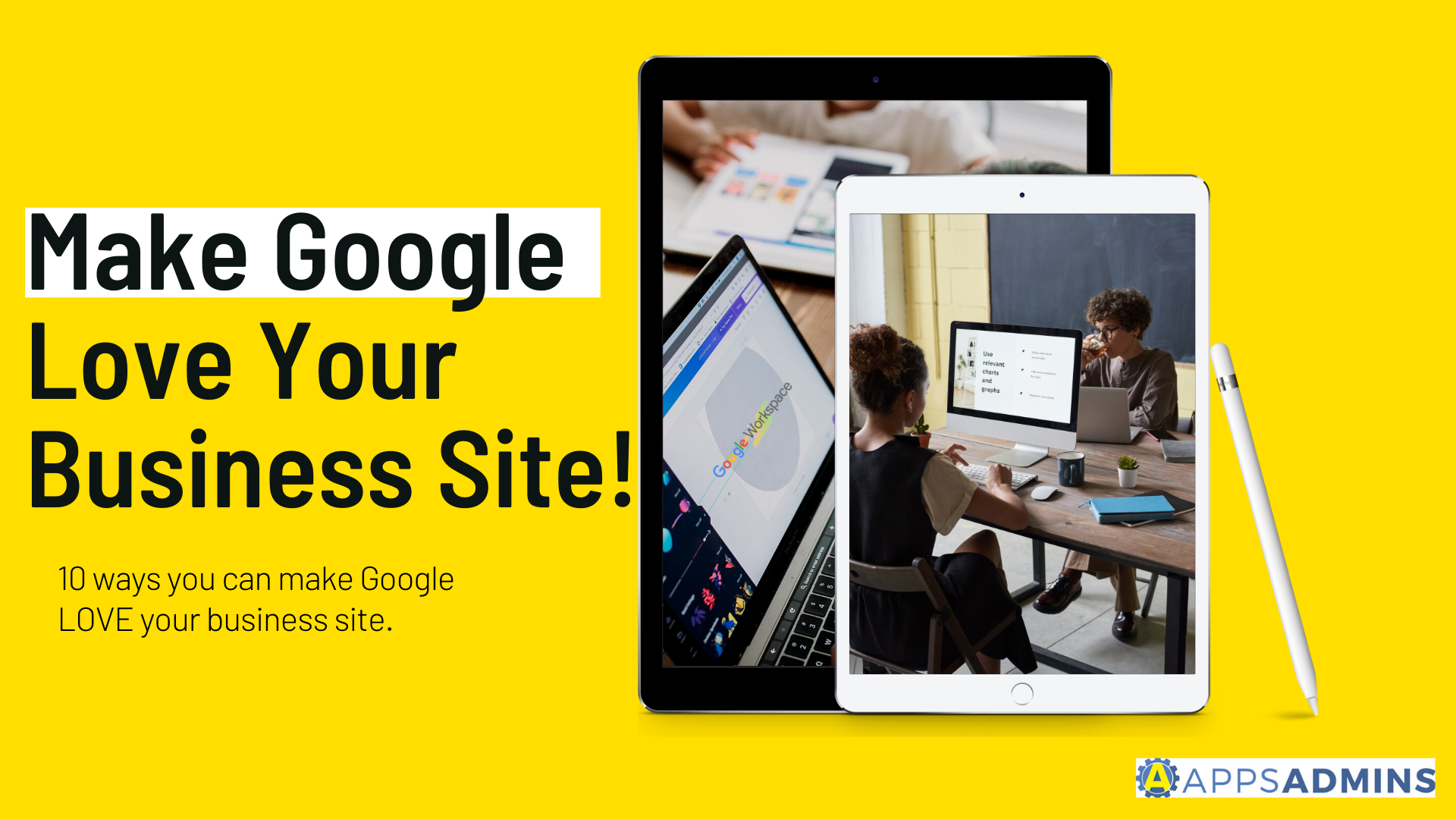G Suite Business Free for 30 Days
Sign up for a Free 30 Day Trial of G Suite Business and get Free Admin support from Google Certified Deployment Specialists.

As the world continues to go online with relentless speed, businesses scramble to find their places in the cloud. They are constantly looking for ways to improve their businesses through smoother workflows and better customer experiences. They don’t want to float aimlessly in the cloud and self-destruct. The solution is Google apps.
While Google apps work best with small and mid-sized businesses, more and more big businesses are realizing their importance. For instance, Sanmina-SCI, a leading provider for electronics manufacturing services with 37,000 diverse employees worldwide was looking for less expensive collaboration tools. They found them in Google apps. The Roche Group, with over 110 years in healthcare solutions and more than 90,000 employees, found the rapid innovation of Google apps impressive.
You don’t have to tow the bandwagon blindly just because everybody is doing it. You need to convince yourself that using Google apps would improve your bottom line. Being hosted services, Google apps are one of the most cost-effective solutions with 24/7/365 Google support compared to in-house systems with massive infrastructure to maintain. Cost being out of the question, how do Google apps improve the operation of your business?
Gmail for Speedy Connection with People
Gmail is no ordinary email. It is a fast way of connecting with your employees and customers through text, voice and video chats online. With an enormous storage capacity of 25GB, you can store profile photos, shared docs, other Google apps and important attachments to your inbox. This means that you can now have a cache of information for future reference. You can also access your Gmail from your mobile device with Internet connection while on the road or in a remote meeting.
Google Docs for Collaboration
Traditional documents are hard to prepare, track, distribute and store. Google Docs is a convenient Web-based application that allows various users to write and edit documents in a collaborative environment. They can be automatically stored, saved, recovered or exported into different file extensions anytime, anywhere. Its use can be extended to accommodate customer use if your business so requires.
Abuse or unsafe use of Google Docs is not an issue because you can set controls to limit accessibility to authorized users for creating, viewing and sharing files. For example, you can assign sensitive files to designated employees to track accountability.
Google Sites for Sharing Company Information
Google Sites is a helpful tool to create interdepartmental information hubs for employees as well as customers. It allows you to post information from other Google apps such as Google Calendar for important events for all employees to see. Announcing meetings, new policies, new projects and other company happenings can be made much easier with Google Sites. You can assign certain employees or designate a team to administer the sites.
Google Calendar for Better Synchronization
How would you want to start your day with a well-organized schedule? Or receive event reminders in your Gmail or mobile device. These are all made possible by Google Calendar. Calendar sharing is also a great way to work with your team. Now you don’t have to run around finding your team mates or being late for meetings and projects.
Coordinating company activities can create confusion among employees if time and dates are not synchronized. With Google Calendar, you can put together smooth meetings, sessions, trainings, seminars and company celebrations. You avoid absences, tardiness or slip-ups and the perennial alibis of non-attendance.
Google apps are not mere hypes that you have to use because it is the “in” thing to do. They are real solutions that give real benefits to your business. They are fast becoming a necessity for businesses to survive and thrive in a highly digitized landscape.
While Google apps work best with small and mid-sized businesses, more and more big businesses are realizing their importance. For instance, Sanmina-SCI, a leading provider for electronics manufacturing services with 37,000 diverse employees worldwide was looking for less expensive collaboration tools. They found them in Google apps. The Roche Group, with over 110 years in healthcare solutions and more than 90,000 employees, found the rapid innovation of Google apps impressive.
You don’t have to tow the bandwagon blindly just because everybody is doing it. You need to convince yourself that using Google apps would improve your bottom line. Being hosted services, Google apps are one of the most cost-effective solutions with 24/7/365 Google support compared to in-house systems with massive infrastructure to maintain. Cost being out of the question, how do Google apps improve the operation of your business?
Gmail for Speedy Connection with People
Gmail is no ordinary email. It is a fast way of connecting with your employees and customers through text, voice and video chats online. With an enormous storage capacity of 25GB, you can store profile photos, shared docs, other Google apps and important attachments to your inbox. This means that you can now have a cache of information for future reference. You can also access your Gmail from your mobile device with Internet connection while on the road or in a remote meeting.
Google Docs for Collaboration
Traditional documents are hard to prepare, track, distribute and store. Google Docs is a convenient Web-based application that allows various users to write and edit documents in a collaborative environment. They can be automatically stored, saved, recovered or exported into different file extensions anytime, anywhere. Its use can be extended to accommodate customer use if your business so requires.
Abuse or unsafe use of Google Docs is not an issue because you can set controls to limit accessibility to authorized users for creating, viewing and sharing files. For example, you can assign sensitive files to designated employees to track accountability.
Google Sites for Sharing Company Information
Google Sites is a helpful tool to create interdepartmental information hubs for employees as well as customers. It allows you to post information from other Google apps such as Google Calendar for important events for all employees to see. Announcing meetings, new policies, new projects and other company happenings can be made much easier with Google Sites. You can assign certain employees or designate a team to administer the sites.
Google Calendar for Better Synchronization
How would you want to start your day with a well-organized schedule? Or receive event reminders in your Gmail or mobile device. These are all made possible by Google Calendar. Calendar sharing is also a great way to work with your team. Now you don’t have to run around finding your team mates or being late for meetings and projects.
Coordinating company activities can create confusion among employees if time and dates are not synchronized. With Google Calendar, you can put together smooth meetings, sessions, trainings, seminars and company celebrations. You avoid absences, tardiness or slip-ups and the perennial alibis of non-attendance.
Google apps are not mere hypes that you have to use because it is the “in” thing to do. They are real solutions that give real benefits to your business. They are fast becoming a necessity for businesses to survive and thrive in a highly digitized landscape.
.jpg?width=818&name=appsadmins-svg-rules-1%20(2).jpg)







